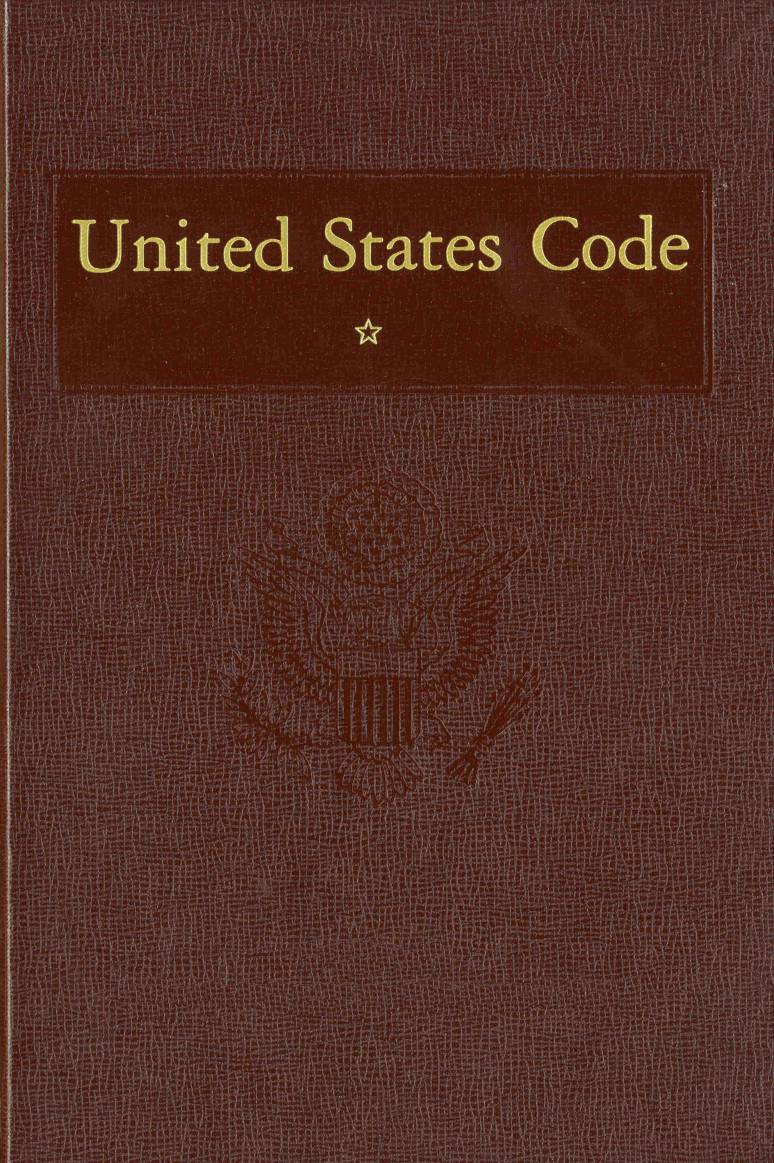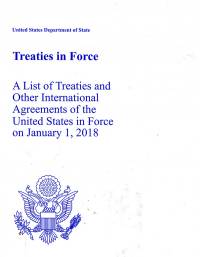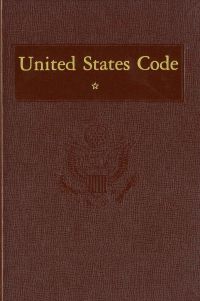
The United States Code (US Code) is the Code of Laws of the United States of America and is a compilation and codification by subject matter of all the general and permanent Federal laws of the United States. This volume contains codified Federal laws as of 2012 pertaining to Title 22, Foreign Relations (International Relations) and related Foreign Affairs legislation and regulations.
Title 22, Section 2151, begins with Chapter 32 heading Foreign Assistance and covers International Development, Military Assistance and Sales, Debt Reduction for Developing Countries with tropical forests, and more. Subsequent section chapters in this section of Title 22 include some of these topical areas such as Mutual Educational and Cultural Exchange Program; The Peace Corps; Nuclear Proliferation Prevention; International Religious Freedom; United States-China Relations; Trafficking Victims Protection; International Criminal Court; Diplomatic Telecommunications Service Program; Trade Sanctions Reform and Export Enhancement; United States- Israeli Cooperation; Iran Threat Reduction and Human Rights; Terrorism, and more.
Title 22 - Foreign Relations and Intercourse Table of Contents
1. Diplomatic and Consular Service Generally [Repealed, Transferred, or Omitted]
2. Consular Courts [Repealed or Omitted]
3. United States Court for China [Repealed or Omitted]
4. Passports
5. Preservation of Friendly Foreign Relations Generally [Repealed or Transferred]
6. Foreign Diplomatic and Consular Officers
7. International Bureaus, Congresses, etc.
8. Foreign Service Buildings
9. Foreign Wars, War Materials, and Neutrality
10. Hemispheral Relations
11. Foreign Agents and Propaganda
12. Claims Commissions [Omitted]
13. Service Courts of Friendly Foreign Forces
14. Foreign Service [Repealed or Transferred]
14A. Foreign Service Information Officers Corps [Repealed]
15. The Republic of the Philippines
16. Greek and Turkish Assistance [Repealed]
17. Relief Aid to War-Devastated Countries [Repealed]
18. United States Information and Educational Exchange Programs
19. Foreign Assistance Program [Repealed]
20. Mutual Defense Assistance Program [Repealed or Omitted]
20A. Mutual Defense Assistance Control Program [Omitted]
21. Settlement of International Claims
21A. Settlement of Investment Disputes
22. Mutual Security Assistance [Repealed]
23. Protection of Citizens Abroad
24. Mutual Security Program
24A. Middle East Peace and Stability
25. Protection of Vessels on the High Seas and in Territorial Waters ofForeign Countries
26. Armed Forces Participation in International Amateur Sports Competitions [Repealed]
27. International Cultural Exchange and Trade Fair Participation [Repealed]
28. International Atomic Energy Agency Participation
29. Cultural, Technical, and Educational Centers
29A. Inter-American Cultural and Trade Center
30. International Cooperation in Health and Medical Research
31. International Travel
31A. National Tourism Organization [Omitted or Repealed]
32. Foreign Assistance
33. Mutual Educational and Cultural Exchange Program
34. The Peace Corps
35. Arms Control and Disarmament
36. Migration and Refugee Assistance
37. Foreign Gifts and Decorations
38. Department of State
39. Arms Export Control
40. International Expositions
41. Study Commission Relating to Foreign Policy [Omitted]
42. International Economic Policy [Omitted]
43. International Broadcasting [Repealed]
44. Japan-United States Friendship
45. Commission on Security and Cooperation in Europe
46. International Investment and Trade in Services Survey
46A. Foreign Direct Investment and International Financial Data
47. Nuclear Non-Proliferation
48. Taiwan Relations
49. Support of Peace Treaty Between Egypt and Israel
50. Institute for Scientific and Technological Cooperation
51. Panama Canal
52. Foreign Service
53. Authorities Relating to the Regulation of Foreign Missions
53A. Disposition of Personal Property Abroad
53B. Foreign Relations of the United States Historical Series
54. Private Organization Assistance
55. Research and Training for Eastern Europe and Independent States of Former Soviet Union
56. United States Institute of Peace
57. United States Scholarship Program for Developing Countries
58. Diplomatic Security
59. Fascell Fellowship Program
60. Anti-Apartheid Program [Repealed]
61. Anti-Terrorism—PLO
62. International Financial Policy
63. Support for East European Democracy (SEED)
64. United States Response to Terrorism Affecting Americans Abroad
65. Control and Elimination of Chemical and Biological Weapons
66. United States-Hong Kong Policy
67. Freedom for Russia and Emerging Eurasian Democracies and Open Markets Support
68. Demilitarization of Former Soviet Union
68A. Cooperative Threat Reduction With States of Former Soviet Union
69. Cuban Democracy
69A. Cuban Liberty and Democratic Solidarity (LIBERTAD)
70. Mansfield Fellowship Program
71. United States International Broadcasting
72. Nuclear Proliferation Prevention
73. International Religious Freedom
74. Foreign Affairs Agencies Consolidation
75. Chemical Weapons Convention Implementation
76. Assistance to Countries With Large Populations Having HIV/AIDS
77. United States-China Relations
78. Trafficking Victims Protection
79. Trade Sanctions Reform and Export Enhancement
80. Diplomatic Telecommunications Service Program Office (DTS-PO)
81. International Criminal Court
82. Afghanistan Freedom Support
83. United States Leadership Against HIV/AIDS, Tuberculosis, and Malaria
84. Millennium Challenge
85. North Korean Human Rights
86. Climate Change Technology Deployment in Developing Countries
87. United States and India Nuclear Cooperation
88. Nuclear Non-Proliferation Treaty—United States Additional Protocol Implementation
89. Advancing Democratic Values
90. Volunteers for Prosperity Program
91. Enhanced Partnership With Pakistan
92. Comprehensive Iran Sanctions, Accountability, and Divestment
93. United States-Israel Cooperation
94. Iran Threat Reduction and Syria Human Rights
95. Iran Freedom and Counterproliferation
United States appointed foreign officers, international relations staff at large and midsize companies, trade compliance officers, and international arbitration attorneys may be interested in these US laws that deal with non-USA programs. Students studying Transnational business law or global law and economic development classes may wish to have a current copy of the US laws in these areas.
Product Details
- Laws of the United States





